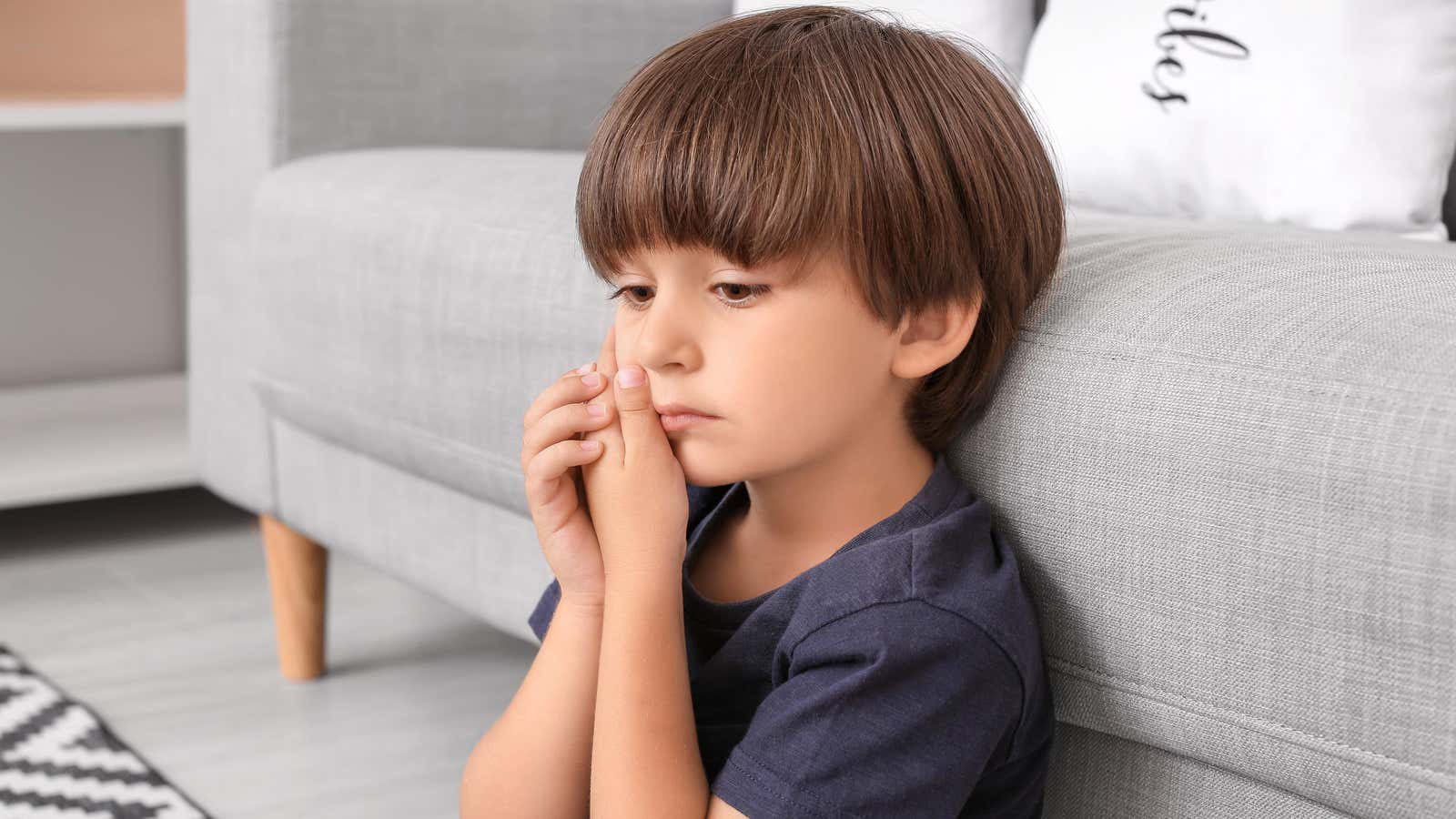How to Recognize “rejection-Sensitive Dysphoria” in Your Child

In the neurodivergent community, the term “rejection-sensitive dysphoria” (RSD) is gaining traction, which means that someone feels pain when they are criticized, or feels that they are belittled or rejected in some way. Children with ADHD often have RSD, often erroneously referred to as “bad sport”, “too sensitive”, or “crybaby”. Here we outline the signs of RSD and talk to some experts about how to help your child deal with it.
What does RSD “look like”?
If you’re a visual, check out this TikTok by Dr. Ned Hallowell , a psychiatrist who suffers from and specializes in ADHD, where he describes some of the qualities of a person with ADHD and RSD. These include:
- Hypersensitivity
- Easily offended, emotionally
- [Increased] Empathy
- Frequent perception of failure, including when it actually doesn’t exist or isn’t intended
- Self-criticism or negative self-talk, which may include self-harm
- Emotional outbursts
- social isolation
- Low self-esteem
People with RSD often describe the feeling of rejection as real physical pain, more intense than the emotional pain that neurotypicals experience when faced with criticism. This can obviously make coping with interpersonal relationships, school situations, and possible work difficult. However, RSD is not a clinical diagnosis in its own right, and it is not listed in the DSM, the official document that lists mental health conditions.
Why is RSD combined with ADHD?
One of the reasons why children with ADHD may have a higher prevalence of RSD may be due to the fact that they may face rejection due to their hyperactive, impulsive, or inattentive behavior. “Because of these symptoms, they tend to receive more guidance and negative feedback from adults than their peers of the same age,” says Dr. Fatima Watt, Ph.D., psychologist at Francscan Children’s . Children with ADHD are told “stop”, “pay attention” and “no” more often than others.
Constant negative feedback can have behavioral consequences. “When you are often told to stop doing something that you find it hard to stop doing, it often leads to feelings of sensitivity to the feedback of others,” says Dr. Emily King , a child psychologist who specializes in raising and educating neurodivergent children and adolescents. Research shows that children with ADHD experience a disproportionate amount of criticism compared to their peers.
Dr. Watt adds: “The central nervous system plays a role in the development of RSD. Due to differences in the frontal lobes in children with ADHD, the nervous system is more receptive to the outside world. Actual or perceived rejection can trigger a trauma-like stress response that seems more drastic than justified by outside observers.” Experts don’t think RSD is caused by trauma, rather ADHD can often mimic brain trauma.
How to help your child feel better
If your child is struggling with rejection and you think it might be RSD, there are several ways to help him deal with these unpleasant feelings, starting with talking to him about it. Knowing “the problems that may accompany this condition can help them feel less isolated and alone.” Demystifying the diagnosis can help your child build a community.
In general, try to focus on the positive qualities of your child as well. “Be sure to regularly give your child positive feedback while avoiding overly harsh criticism,” says Dr. Watt. Sometimes it’s hard to see the positive, so you may need to remind yourself of even the little things. For example, when your child failed and didn’t explode, be sure to notice that he was adjusting his reactions and using his skills, even if it happened to you, what he did would be “normal”. ” way to react. For your child, this could be a big win.
Give your child plenty of opportunities to succeed. “Cultivate confidence in all areas of your strength so that there is a buffer for the more frequent feedback children with ADHD may receive about their behavior. Help shape a growth mindset that normalizes mistakes as part of learning to improve problem-solving skills,” says Dr. King. Practice saying “bye” at the end of sentences. “I don’t know how to do this… yet. This makes “failure” feel not like failure, but like “not yet.”
Share strategy with teachers
When it comes to problem solving both at school and at home, Dr. King suggests that you “Approach feedback like a problem-solving team, where you work together to decide what was difficult. Remember that you and the child are against the problem, not seeing the child as the problem.” The best teachers are the ones that say your child had a rough day, not that they had a rough day with your child.
Make sure you talk to all teachers, coaches, and other caregivers about what works well for your child. “Any strategy that parents find helpful, such as problem solving as a team, should be shared with others so they also have that strategy in their toolbox when teaching and teaching your child,” says Dr. King.
Inevitably, things will go wrong, they will be rejected , or someone will treat them badly, “and teaching your child how to deal with their feelings of rejection and criticism can be especially rewarding as they grow and develop.” says Dr. Watt. Different things may work better for different children. Mindfulness , breathing techniques, and other “reboot” techniques can work well.
No child is completely immune to rejection , but your child can learn resilience skills now to set themselves up for a lifetime of rejection, acceptance, ups and downs as they grow up.